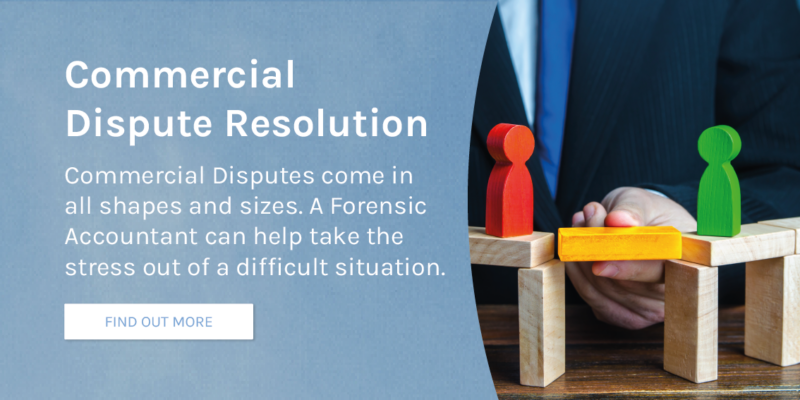Director and shareholder disputes can unfortunately be a common occurrence in any business. No matter the success, size, or scope of the company in question, difficult situations such as this can be inevitable.
So, if you are faced with a director/shareholder dispute, what options are available to reach a fair resolution without impacting operations? One key method is a business valuation, particularly in cases where the director/shareholder feels that their return on investment is not high enough.
This blog will detail how business valuations work, the importance of valuations, and most importantly, a few key business valuation steps for director and shareholder disputes.
How Do Business Valuations Work?
A business valuation is the process of determining the current worth of a company using a series of objective measures. Business valuations work by analysing the operation and management — primarily by reviewing capital structure, future earnings, and the market value of firm assets. However, the method of valuation can differ depending on the person in charge of valuation.
They can be undertaken by a director or shareholder, but this will be deemed unacceptable in many situations, not least of which being in the event of a director/shareholder dispute. If the situation dictates that somebody from within the company is inappropriate due to biases, it is common for an independent party such as a forensic accountant to be instructed.
A third party such as a licenced forensic accountant can alleviate any fears of the business valuation being done in a manner that favours one particular side or opinion over another — to provide an impartial, non-partisan point of view on the subject.
Why Business Valuation is Needed
Understanding why a business valuation is needed is an important step in the present and future of your company. It is a measure to understand your business’s current financial health, as well as assisting with any potential exit strategies and locating inefficiencies in your operation which then allows you to strategise on how to improve your company’s cash flow.
It is also worth remembering that business valuations are not exclusive to resolving director and shareholder disputes. They can also be useful in other situations, including:
- Resolving tax and legal issues
- Selling, purchasing, or merging with another company
- When a key director/shareholder dies or can no longer perform their duties for health reasons
- During divorce proceedings
Business Valuation Steps for Shareholder Disputes
From gathering relevant data and selecting the preferred method of valuation, to determining the final valuation figure, there are a variety of key steps in the business valuation process. However, the most important step is securing the services of an independent business valuation expert — somebody with experience, beyond recourse
It should be remembered that just as all businesses are unique, all business valuations will vary from company to company. That said, there are a few consistencies regardless of valuation method, cause for valuation, size of the firm, etc.
The business valuation steps for director and shareholder disputes should include the following:
Step One: Preparation
As any business owner will attest, a good company requires a keen eye for detail and effective preparation against any eventuality. This is also true for a business valuation — attention to detail is vital.
Arguably the most important preparation step is to decide what the premise of the value is.
Your premise of value refers to the circumstances behind the valuation, for example a merger, acquisition or determining whether a business is a going concern.
The importance of determining the premise of value boils down to the fact that a company’s valuation will, in part, be dictated and affected by the circumstances behind it.
For example, a company embroiled in a dispute that has no impact on the operation will likely have an unaffected valuation. However, if the company is in the midst of liquidation proceedings and the process of selling off assets then the valuation will be significantly lower than were it still operating as a going concern.
Step Two: Gather Documents and Data
The second vital step in the business valuation process before the actual valuation starts is to gather all relevant data and documents such as:
- Financial records
- Supplier agreements
- Contracts
- Leases
- Loan documentation
- Sales forecasts
- Previous years financial performance data

Gather any of these documents as you can, alongside any other supporting data or future obligations. For the most efficient valuation possible, this information should be assessed and gathered by the business in advance, ready to be provided to your valuer to assess. Your expert valuation specialist will likely seek out additional documentation, but it is important that they can get started immediately with a majority of the data they need readily available.
Step Three: Determine Optimum Valuation Method
The final important step to take before your business valuation is to determine the best method of calculating your business’ valuation. When it comes to valuation methods, there are four common options:
- Asset Valuation: Assess the value based on the company’s stock of assets (inventory, machinery, land, etc.)
- Earnings method: Look into the historic earnings of the company to formulate a track record, leading to a value.
- Market value: A method which takes into account the selling price of similar businesses in the market.
- Future earnings: Calculating your business’ valuation based on estimations of future earnings.
For more information on the different — most optimal methods of business valuation — have a look at our blog for greater detail on the subject.
Step Four: Apply Method
Once all preparation is complete, all relevant data is collated, and your choice of validation method is made, the process of applying your method should begin.
However, you may want to consider several different methods of valuation. This is done in order for you and an expert valuer to cross-examine the numbers of one method against another and potentially allow you to come to a more accurate and all-encompassing number.
This can also be helpful for eliminating any anomalous valuation amounts that are either far above or far below the figures presented with other common methods. However, it is of course worth considering that the more methods of valuation you opt to undertake, the longer the process is likely to take.

Step Five: Reach Conclusion
The natural conclusion to the process of valuing your business is arriving at a clear determination of value. Any business valuation conclusion should typically be incorporated into a comprehensive and detailed report. This valuation report should include details on the approach taken, conclusions made, projections for the future, and more.
A comprehensive valuation report should, in most cases, help resolve any director/shareholder dispute you are faced with. However, if the dispute remains, it is recommended that you contact a dedicated forensic accountant. These experts can offer further recommendations as to what you can do to bring this difficult situation to a close.
Why Work with Inquesta to Value Your Business
Director and shareholder disputes can strike in any business; from high flying titans to small, owner-operated companies. Such a complication can bleed into an operation and cause issues to crop up if ignored. Inquesta has decades of experience dealing with director and shareholder disputes, making us perfectly equipped to offer a helping hand.
Because we understand that the needs of one business valuation will differ to the company next door, our forensic accounting service is bespoke and tailor-made to fit your precise situation.
If you need further information on business valuation for shareholder disputes, take a look at our eBook which goes into the topic in far more detail and depth.
Or if you would like to find out what Inquesta can do now to help with your business valuation and resolving a director and shareholder dispute, get in touch with a member of our team today or contact us to book a free no-obligation consultation.



